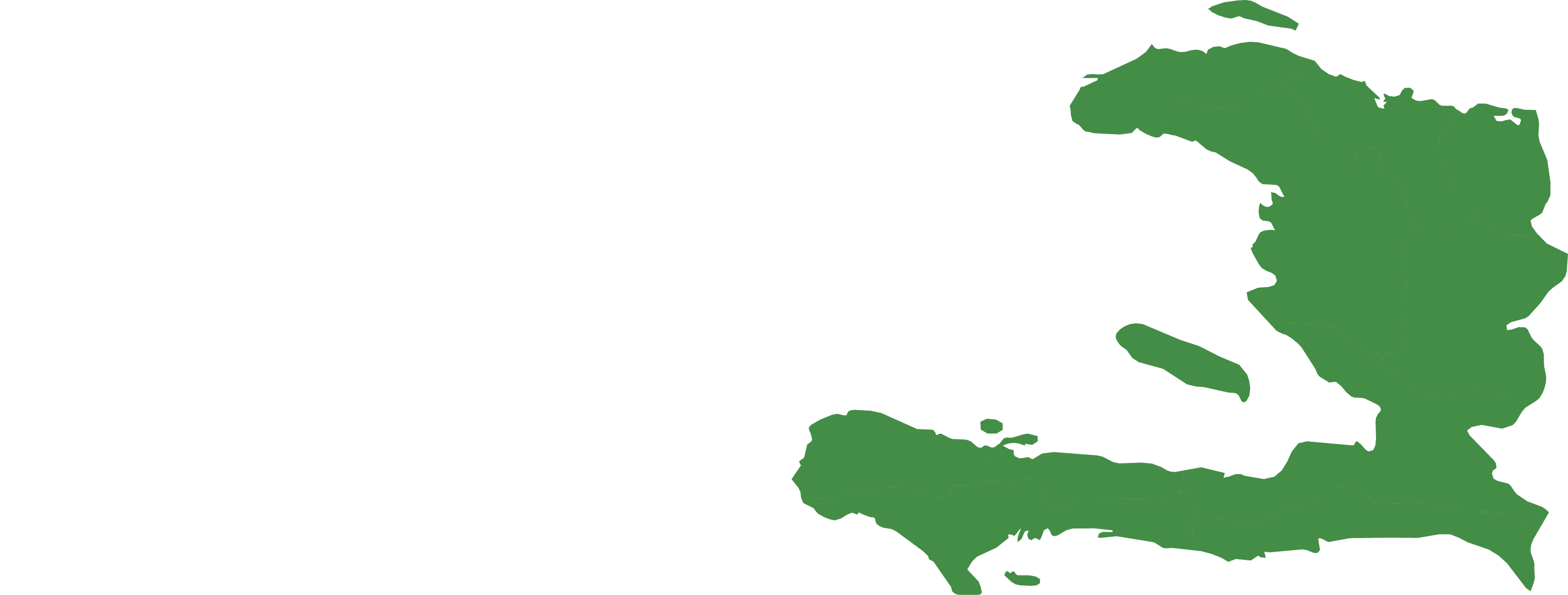After a whirlwind 12 days in Port-au-Prince, Cherlie and I arrived back in Florida on Friday morning, having “hitch-hiked” on another helicopter from Port-au-Prince to Santo Domingo and then getting a plane flight to Miami. We felt a mixture of sadness and relief as we left the country we now call home – a country that had very little infrastructure one month ago, and now has none, a country where almost every person’s life has been recently touched by death. The major structures of government lie in a shambles, piles of rubble where once were offices and computers and records. The gleaming white palace is now lopsided, walls caved in, windows broken and roofs lying at awkward angles. State university buildings are demolished and schools across the country have closed, causing students to lose a precious year of their education. One of the few functioning departments is the National Police Department, and even their employees don’t know if they will ever get paid.
The streets of Port-au-Prince are more congested than ever, but rather than colorful tap-taps and taxis, the cars and trucks wear the decals of the UN and NGO’s – all there to help Haiti through this time of suffering and destruction. In every open area and park throughout the city are “displaced persons”, those without homes, living in temporary shelters made from bed sheets held up by wooden poles. And in the residential areas, even when homes are standing, no one is sleeping inside them. At night, whole neighborhoods spread out their sheets and mattresses along the side of the road to sleep. They live in fear of another earthquake, made more real by the frequent aftershocks and smaller quakes that continue to shake the ground under them. These rumblings have been felt by all of us, and make us wary of standing or driving on narrow streets where buildings could crash down on us at any time. Palpitations and anxiety are common among the patients we saw, and we could only say “I know what you’re feeling, because I feel it too.”
A lot has been written and said about the delay in supplies and medical care reaching the people of Port-au-Prince. I can only say that the logistics of this relief operation are massive. The streets of Port-au-Prince were poor to begin with and now many are blocked by rubble, making access very difficult. There appeared to have been massive rescue operations in areas where large buildings collapsed and people were known to have been inside. Many, many people were pulled out of the rubble by family members and friends, some of them several days after the initial earthquake. We saw several areas where food and water were being distributed, always accompanied by armed UN troops to maintain order. Security is a huge issue for medical relief groups, since any type of mobile clinic needs to be set up in such a way as to insure that masses of people seeking care can be controlled.
If there was one thing that impressed me during our time in Port-au-Prince, it was the normalcy of life there. On our initial survey trip throughout the city, exactly one week after the earthquake, people were walking along the streets as always, buying food in their local open-air markets, talking and arguing as they always do. The only thing that seemed out of place were the masks that many wore, to protect from the stench of dead bodies that were buried in the piles of rubble.
Haitians are a resilient people; they have proven this throughout history. They will rebuild from this disaster and, hopefully, with the help of others, will become a better country for it. Their grieving is over, they’ve picked up the pieces and their lives go on, no matter how difficult they are. And, in a few days, we’ll be back there beside them, helping them through the long process of reconstruction. Thousands of people have fled from Port-au-Prince to their homes in the Jeremie area and we will soon be taking care of their medical and health needs. We are anxious to get started on construction of a permanent clinic building so we can expand our services to those in need. We thank our generous donors for their assistance in making this construction a reality.

Katie and Cherlie – if you only knew how many people in central New Jersey area (and even beyond who have connections to New Brunswick) have called and continue to ask about you both and your welfare and what they can do – it would take more than this little space. I refer them to the Friends for Health in Haiti web site and allow them to make their choices and to keep up with your information and up-dates.
There are so many of us praying for you and your (our) people and trust that soon hope will be restored to many. We keep you in our love and prayers.
Stay well! My very best – Helen Burd